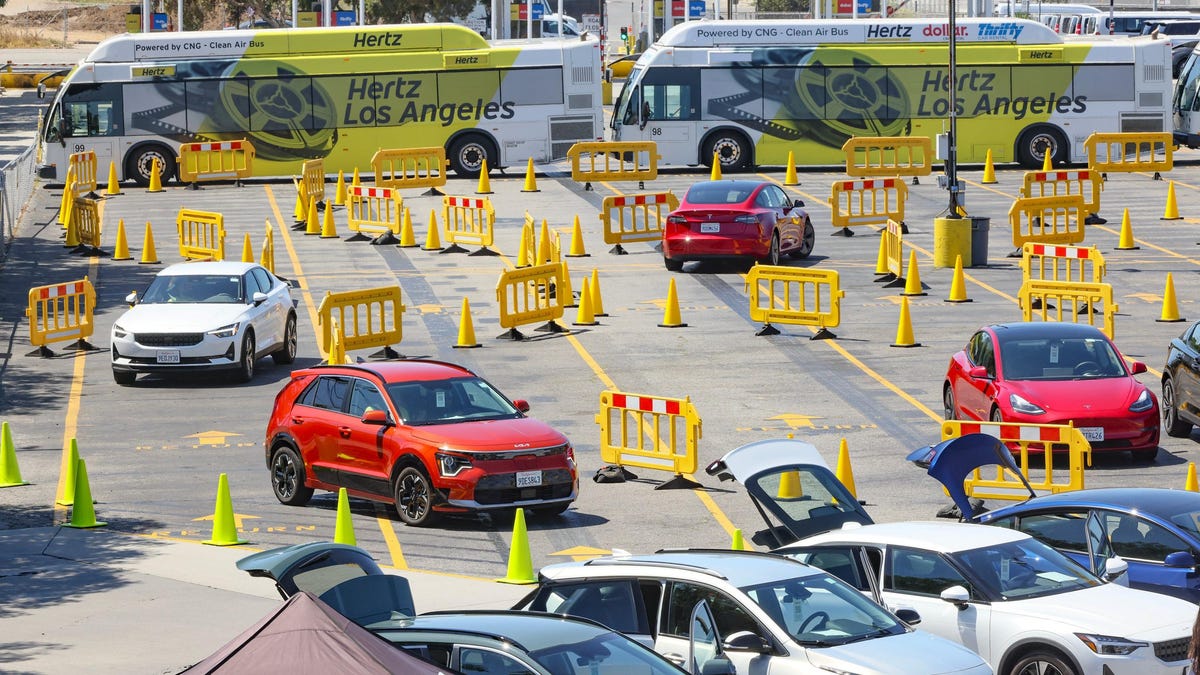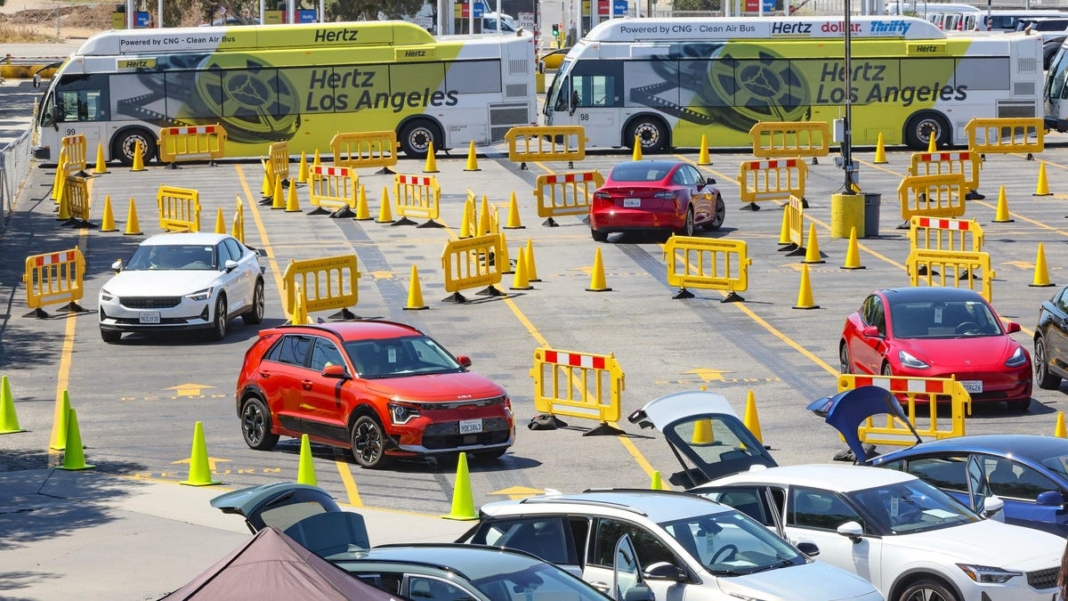
Hertz CEO Stephen Scherr is resigning and will be replaced a former Delta Airlines and General Motors executive, the rental car company said, a shakeup that came after an investment in electric vehicles turned into what Scherr himself called a “distraction.”
Gil West, a former COO at Delta and GM’s often troubled self-driving Cruise unit, will become the new Hertz chief executive on April 1, the company said Friday. Hertz said Scherr and West will “work together over the next several weeks to ensure a smooth transition.”
Advertisement
“We are thrilled to have Gil join Hertz as Chief Executive Officer,” Tom Wagner, the vice chair of Hertz’s board, said in a statement. “Gil’s experience as a successful leader in operationally intensive businesses will further strengthen the Company’s world class team of over 27,000 global employees who work tirelessly to deliver outstanding service to customers daily.”
Advertisement
West said he is “excited to join Hertz and build on its extraordinary family of brands and global network.”
Advertisement
“With a 106-year history,” West said, “Hertz enjoys incredible brand strength and customer loyalty.”
Scherr joined Hertz in 2022 and led the company through its emergence from bankruptcy. Hertz bet big on EVs, saying last year that, “for customers who are curious about electric vehicles, there’s no better way to experience one than with a test drive at Hertz.” The company boasted “the largest rental fleet of EVs in the U.S.”
Advertisement
The investment didn’t pan out. Hertz earlier this year reported higher quarterly revenue, but it also told investors that profits took a $464 million swing to a $348 million loss.
Scherr blamed EVs. The cars were more expensive to maintain than Hertz had initially thought, and the company couldn’t make as much money selling them when it needed to refresh its offerings. Hertz said it got rid of a third of its EV fleet.
Advertisement
“We obviously took and are taking 20,000 cars out,” Scherr told investors in February. “We think we’ve landed on an EV fleet that meets demand. But I can assure you, if those numbers don’t scratch to an adequate return, then we will take further action against that fleet.”
“I think we have dramatically de-risked the ability to go at cost unrelated to the EVs, meaning away from the sort of clear categories of expense that we are relieving ourselves in the sale of the EVs,” he added. “We are reducing the operational distraction in the field in a very meaningful way.”
Advertisement
-Melvin Backman contributed to this article.
Source: qz.com



